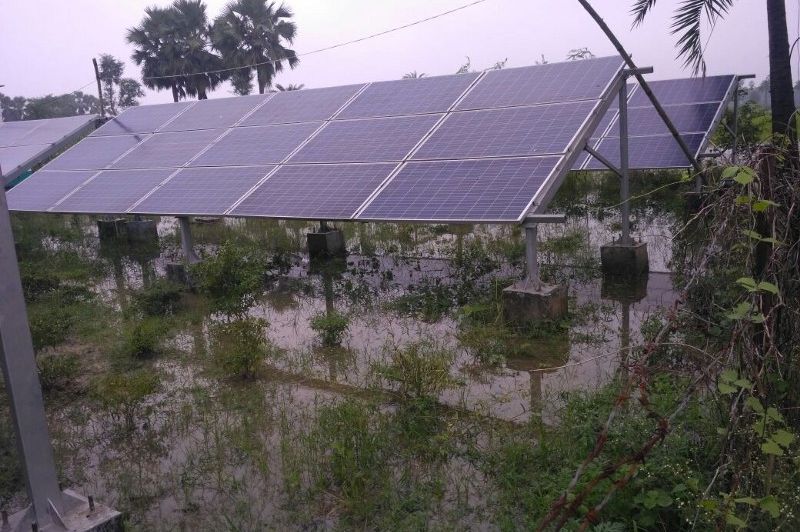In late August, Bihar, one of the poorest states in India, was devastated by flooding that affected millions of people and severely challenged authorities working to support the rural communities hit hardest. With uncertainty about the availability of grid power, renewable energy mini-grids stepped up to ensure adequate back-up power and played a key role in assisting with relief operations.
In northern Nabiganj district, Tara Urja, a Smart Power energy service partner, operates a mini-grid, which has proven to be the source relied on by locals for electricity. The mini-grid also supplies electricity to the Block Development Office in Nabiganj, which uses mini-grid power during the hours when they receive no grid-connected power.
By 17 August, villages including Hardiya, Nabiganj and Dumarsan were under severe flood warning due to the rising water levels of the Gandak river. The Block Development Officer of Nabiganj, Ashish Kumar Mishra, reached out to Tara Urja seeking assistance to ensure that electricity supply to the office coordinating flood relief efforts was not affected.
Overnight, the Tara team segregated a special feeder line for the block office to ensure uninterrupted supply. On the night of 17 August, a Tara Urja technician was on call overnight to ensure that electricity supply to the block office was not hampered.
“Nine of the 11 panchayats in our block were severely affected by the floods. We sought the help of Tara Urja’s mini-grid to assist us with flood relief work. We have been availing mini-grid electricity and knew we could rely on it to ensure that our relief efforts did not get hampered by lack of electricity. We relied on their electricity for two days during the time of floods”, Ashish Kumar Mishra said.
Tara Urja’s dedicated field team proved that decentralized renewable energy mini-grids can step in to assist with disaster and relief operations by ensuring availability of adequate back-up power.
